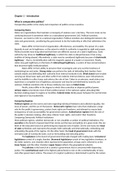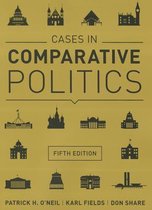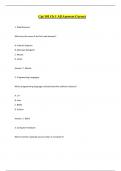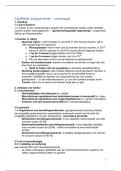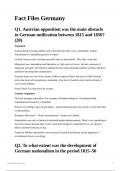Samenvatting
Summary Cases in Comparative Politics - Patrick H. O'Neil, Karl Fields, Don Share
- Instelling
- Universiteit Leiden (UL)
Summary of the book Cases in Comparative Politics (sixth edition) by Patrick H. O'Neil, Karl Fields and Don Share. Summary of Chapter 1 - 5, 7, 8, 10, 12 and 13.
[Meer zien]
